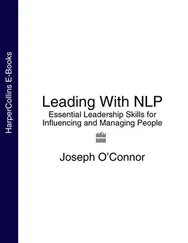John Gray - Children Are from Heaven - Positive Parenting Skills for Raising Cooperative, Confident, and Compassionate Children
Здесь есть возможность читать онлайн «John Gray - Children Are from Heaven - Positive Parenting Skills for Raising Cooperative, Confident, and Compassionate Children» весь текст электронной книги совершенно бесплатно (целиком полную версию без сокращений). В некоторых случаях можно слушать аудио, скачать через торрент в формате fb2 и присутствует краткое содержание. Год выпуска: 1999, ISBN: 1999, Издательство: HarperCollins e-books, Жанр: psy_childs, sci_pedagogy, Психология, на английском языке. Описание произведения, (предисловие) а так же отзывы посетителей доступны на портале библиотеки ЛибКат.
- Название:Children Are from Heaven: Positive Parenting Skills for Raising Cooperative, Confident, and Compassionate Children
- Автор:
- Издательство:HarperCollins e-books
- Жанр:
- Год:1999
- ISBN:978-0-06-133886-1
- Рейтинг книги:4 / 5. Голосов: 1
-
Избранное:Добавить в избранное
- Отзывы:
-
Ваша оценка:
- 80
- 1
- 2
- 3
- 4
- 5
Children Are from Heaven: Positive Parenting Skills for Raising Cooperative, Confident, and Compassionate Children: краткое содержание, описание и аннотация
Предлагаем к чтению аннотацию, описание, краткое содержание или предисловие (зависит от того, что написал сам автор книги «Children Are from Heaven: Positive Parenting Skills for Raising Cooperative, Confident, and Compassionate Children»). Если вы не нашли необходимую информацию о книге — напишите в комментариях, мы постараемся отыскать её.
Children Are from Heaven: Positive Parenting Skills for Raising Cooperative, Confident, and Compassionate Children — читать онлайн бесплатно полную книгу (весь текст) целиком
Ниже представлен текст книги, разбитый по страницам. Система сохранения места последней прочитанной страницы, позволяет с удобством читать онлайн бесплатно книгу «Children Are from Heaven: Positive Parenting Skills for Raising Cooperative, Confident, and Compassionate Children», без необходимости каждый раз заново искать на чём Вы остановились. Поставьте закладку, и сможете в любой момент перейти на страницу, на которой закончили чтение.
Интервал:
Закладка:
These children need clear messages that their negative feelings are okay. They take a little more time to get over hurts and emotional upsets. Yet, sharing their inner burdens and misery to a sympathetic ear is actually a pleasurable relief. Parents who are less sensitive often mistakenly assume something is wrong with their child and make matters worse.
After hearing the feelings of a sensitive child, give him time and a little space to feel better. When he feels better, don’t put a lot of attention on this shift. Have an attitude that is accepting of this temperament as normal and natural.
Don’t give the message that something was wrong and now he is okay. He was always okay.
These children often resist being pushed into new relationships. Forming relationships and friendships generally takes more time than for other children. They need more help in creating opportunities to meet people and form friendships. When they do establish a friendship, they are very loyal, and when they are betrayed, they are very hurt.
Learning to forgive and forget is an important skill they need to learn. When parents listen to their resistance and give understanding, it helps these children to adjust to life’s disappointments and increases their ability to forgive.
When these children get what they need, their special gifts can unfold. They are thoughtful, deeply perceptive, creative, good communicators, and original. They are nurturing, compassionate, gentle, and helpful. They derive great fulfillment by serving others and the world.
Active Children Need Preparation and Structure
The second temperament is active. Active children are less concerned with their inner responses to life and more interested in having an influence. They are concerned with doing, action, and results. They are self-motivated and most cooperative when they know what to do or have a plan. They are always ready to move on, lead, or do things their way.
These children need a lot of structure, otherwise they easily go out of your control and resist your authority. They always need to know in advance what the plan is, what the rules are, and who is the boss. They need a game plan. With this kind of preparation these children become very supportive and cooperative. To minimize resistance with these children, you need to think ahead and prepare them with clear limits, rules, and direction.
A parent could say, “This is what we are going to do. First we will play on the swings and then we will go over to the jungle gym. Each of you will get two-minute turns and then we will switch.” By preparing this active child with clear structure, he or she will be most cooperative.
Active children always need to know in
advance what the plan is, what the rules are,
and who is the boss.
Active children like to be the center of attention and be where the action is. They always want to be right. Without parental structure, they tend to be domineering. This child needs opportunities to be a successful leader. They respect and follow a confident and competent leader. A parent must be careful not to show weakness, indecision, or vulnerability.
For example, don’t directly ask them what they think is best. If they resist by saying what they want after giving instructions, acknowledge their suggestion and then decide what is to be done once again.
If you say, “We are first going to the swing and then to the jungle gym,” they might say, “But the jungle gym is more fun, let’s do that first.” Then a wise parent could say, “That’s a good idea. Let’s do that.” These children love to be right and thrive whenever they are acknowledged.
To minimize resistance from active children it is best to make them first and/or put them in charge of something whenever possible. They have a lot of energy and need parental structure if that energy is to be expressed harmoniously. They are highly motivated to please if given a position of responsibility.
To minimize resistance, make the active child
first or put him or her in charge of something.
Active children need to feel needed and that you trust them. In this case, the parent could say, “First, we will go to the jungle gym and everyone gets a chance to get to the top. Billy, I want you to be in charge of making sure everyone gets to the top at least once. You can go first and show everyone the way.”
Putting active children in a leadership role with clear guidelines brings out the best in them. Automatically, they become more cooperative. They have lots of energy and feel frustrated when they have to sit still too long. They just have to do something and then will act without thinking and get into trouble. This is why they need structure. When their activities are thought out for them, their abundant energy can flow freely without getting them into trouble.
One way to minimize resistance with active children is simply to wear them out. For example, if you have to wait somewhere, this child will become very frustrated. Either give the child a job to do or create a game to use up the energy. You could have the child simply run a defined distance and back and time the run. Active children love breaking their own records. Give them lots of acknowledgment for their achievements and their resistance will melt.
Active children learn about themselves by doing and making mistakes. They need lots of acknowledgment for their successes and forgiveness for their mistakes. These children have a greater tendency to get into trouble. If they are afraid of punishment or disapproval, they will hide or defend their mistakes, and therefore, they will stop learning and growing from them.
Active children need lots of acknowledgment
for their successes and forgiveness for
their mistakes.
Active children have a difficult time just sitting and listening. They need to move around and learn best by doing and participating with others. When they are resistant to your requests, it is best to begin the activity and invite them to join in. Long conversations are counterproductive and often are regarded as a punishment.
For example, if they resist cleaning up their room, then briefly acknowledge what they are doing and then begin cleaning the room. Say something like, “I can see that you are playing and you don’t want to clean up your room. Let’s do it together. This is how we do it . . .” Waiting around for them to do something is not very effective.
Active children let go of resistance by joining in with you. Even if they only help a little, thank them for their help and acknowledge how good the room looks. You might say, “We did a good job!” Active children always want to be a part of the winning team. There is no greater motivator than success itself.
Active children always want to be a part
of the winning team.
Active children know themselves by what they have done and their results. They like power. When they resist your requests, they often need a firm but calm message that it is okay to resist, but mom and dad are the bosses.
Acknowledge what they are doing and then ask again more directly.
For example, you might say, “I can see you are resting in your bed and now I want you to start cleaning this room.” If the child does not respond, then join in by starting to clean and saying, “Let’s start with this part of the room.” This approach in sales is called the “assumptive close.” You assume your client is with you and you begin exploring the finer details of the purchase.
Active children need a clear and direct message of what you want. “I want” statements minimize resistance by reminding this child that you are the boss. Without the right kind of support, active children tend to go out of control, misbehave, and become abusive to others. Besides structure and supervision, they need clear messages that it is okay to make mistakes and that you know they are always doing their best.
Читать дальшеИнтервал:
Закладка:
Похожие книги на «Children Are from Heaven: Positive Parenting Skills for Raising Cooperative, Confident, and Compassionate Children»
Представляем Вашему вниманию похожие книги на «Children Are from Heaven: Positive Parenting Skills for Raising Cooperative, Confident, and Compassionate Children» списком для выбора. Мы отобрали схожую по названию и смыслу литературу в надежде предоставить читателям больше вариантов отыскать новые, интересные, ещё непрочитанные произведения.
Обсуждение, отзывы о книге «Children Are from Heaven: Positive Parenting Skills for Raising Cooperative, Confident, and Compassionate Children» и просто собственные мнения читателей. Оставьте ваши комментарии, напишите, что Вы думаете о произведении, его смысле или главных героях. Укажите что конкретно понравилось, а что нет, и почему Вы так считаете.












